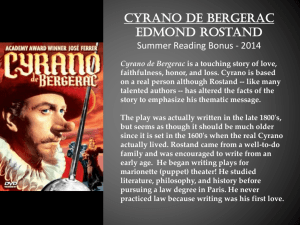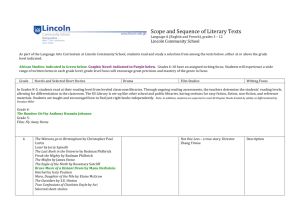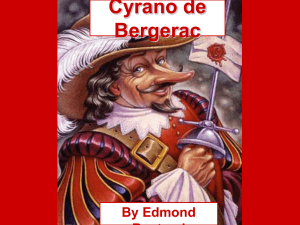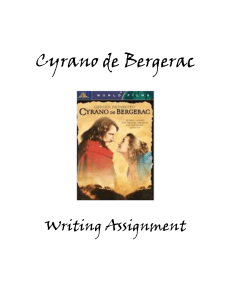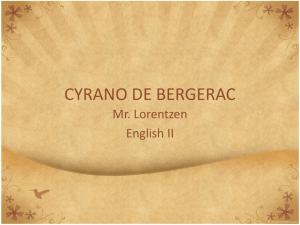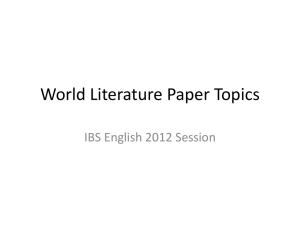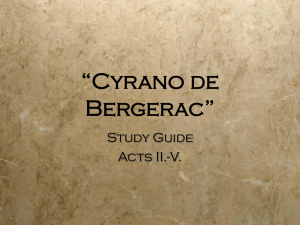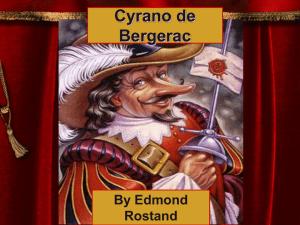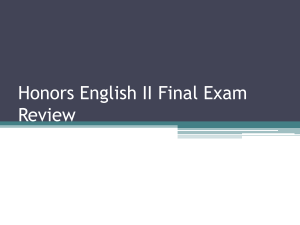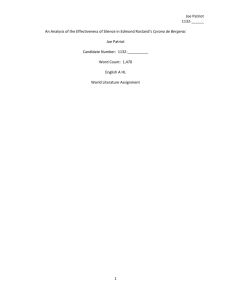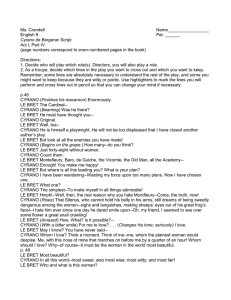Cyrano de Bergerac
advertisement
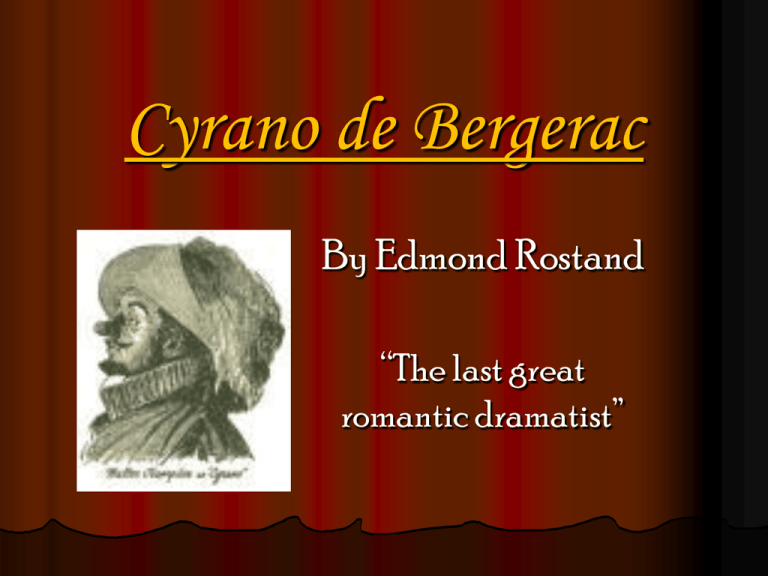
Cyrano de Bergerac By Edmond Rostand “The last great romantic dramatist” The author- Edmond Rostand Born April 1869; French poet and dramatist Rostand was married to poet Rosemonde Etienette Gerard and had two sons Completed Cyrano in 1897 In 1901, Rostand became the youngest writer to be elected to the French Academy All of Rostand's best works, it seems, are tragedies, yet they leave the audience with a feeling of happiness and inspiration that many a comedy fails of producing. Rostand died in France in 1918 Cyrano de Bergerac: A Romantic Comedy Cyrano is referred to as a Romantic play Romance – as a medieval tale – was a French literary form Tales concerned daring deeds of knights and the relationship of the knights to their ladies Roman de la Rose and Chanson de Roland: tales in which the chevalier servant loved his lady from a far and wrote her poetry Heroes were brave, noble, steadfast – their word is their bond Cyrano de Bergerac— the historical character Savinien de Cyrano de Bergerac (1619 – 1655) was a French dramatist and duellist who is now best remembered for the many works of fiction which have been woven around his life story, big nose and all… From prominent – not noble – family Wrote poetry, political pamphlets, some plays – Moliere did in fact use two scenes written by Cyrano! His high courage and equally high spirit made him many enemies and gained him a reputation as a romantic hero Cyrano de Bergerac as Romanticism Romantic period in Europe vaguely began in the late 18th century and ended in middle of the 19th century. Imagination, emotion, and freedom are certainly the focal points of romanticism. Characteristics of Romantic literature: an emphasis on individualism; spontaneity; freedom from rules; solitary life rather than life in society; the beliefs that imagination is superior to reason and devotion to beauty; love of and worship of nature; and fascination with the past, especially the myths and mysticism of the middle ages. Cyrano de Bergerac as Romanticism, Continued Romantic treatments are sometimes sentimental, idealistic rather than realistic A reaction to the restrained neoclassical attitude of reason, order and balance The Romantics freed the French drama from the two unities of time and place. Written in 1897, many believed Cyrano to be the revival of Romanticism Cyrano is celebrated for its idealism History of th 17 Century Paris 1610 – Louis XIII becomes King of France. 1618 – The Thirty Years War begins – Austria and Spain go to war with a group of German Princes. 1624 – Cardinal Richelieu becomes first minister of France. 1634 – Spanish troops invade central and northern Europe. 1635 – France declares war on Austria and Spain. History of 17th Century Paris, Continued 1639 - The real Cyrano is wounded in battle. 1641 – Cyrano leaves the army and takes up literature. 1643 – Louis XIII dies, Louis the XIV becomes king. 1645 – Cyrano dies from head injuries from a log dropped on his head. Terms you should know Comic relief – a witty exchange, skit, or soliloquy that the author inserts to ease tensions within a serious work. Melodrama – a romantic or sensational plot carried to the extremes of emotion in weeping, or dismay. The final act of Cyrano has been labeled melodrama MORE Terms you should know Troubadours— Lyric poets in Southern France, northern Italy, and northern Spain, who composed songs about courtly love. A strolling minstrel. The “real” Cyrano was said to be a minstrel and a great swordsman. MORE Terms you should know Dramatic Irony— Occurs when the audience of a play or the reader of a work of literature knows something that a character in the work itself does not know MORE Terms you should know Unrequited Love--Love not returned in kind; "unrequited (unanswered) love“ "Let no one who loves be unhappy. Even love unreturned has it's rainbow." -James Matthew Barrie "Nothing takes the taste out of peanut butter quite like unrequited love." -"Charlie Brown" MORE Terms you should know Tragedy— A drama or literary work in which the main character is brought to ruin or suffers extreme sorrow, especially as a consequence of a tragic flaw, moral weakness, or inability to cope with unfavorable circumstances. Themes and Motifs in Cyrano • • • • • • Unrequited love Physical beauty vs. spiritual beauty (is one more real than the other?) Heroism Arrogance Loyalty Sacrifice Extensive monologues using subtle wit, alliteration, and double entendres Characters Cyrano de Bergerac – our hero Roxanne his precieuse – a person of highly affected language manners and dress – appearance was of utmost importance Christian de Neuvillette – good looking soldier Compte de Guiche – the villain Ragueneau – poet, baker friend of Cyrano Characters Ligniere – drunk singer of satiric songs Valvert – a dandy friend of de Guiche Montfluerry – a horrible actor And many, many, more…..
